Around noon every weekday, the lobby of Park Hall is bustling with students. The Dailies Cafe, commonly referred to as the Park cafe, is flooded with orders. Fewer than five employees at a time make sandwiches and coffees as crowds of students surround them, all wanting a hot panini for lunch. Despite its popularity, the cafe faces uncertainty regarding its ability to keep serving its signature paninis going into Fall 2025.
The Dailies Cafe, located next to the main doors of Park Hall, started serving paninis in Fall 2023 as part of the college’s meal exchange service, which was introduced to reduce the amount of foot traffic in the Campus Center Dining Hall. The cafe is a popular retail dining location at the college, averaging 450-500 lunch orders per day, according to Dining Services. The cafe also sells pre-packaged breakfast items, salads and coffees.
Jerome Rotunda — the former supervisor of the cafe who left the college April 17 for another job — said the cafe employees have had tension with faculty and administrators in the Roy H. Park School of Communications.
“I think the people in this building are just like, sick and tired of the Park cafe,” Rotunda said. “They don’t like the noise, they don’t like the look of it … and they just don’t want us to be there.”
A consistent issue created by the cafe has been the noise. The cafe sits in earshot of multiple classrooms. The panini machines and GrubHub interfaces buzz and beep constantly and cafe workers conversate and play music. Rob Gearhart ‘82, associate dean of the Roy H. Park School of Communications, said he often receives complaints from staff and faculty that he relays to the cafe workers.
“Faculty around that hallway said they couldn’t keep their doors open in their classrooms because it was just too noisy coming from the cafe,” Gearhart said. “We would ask them to keep [the noise] down and they were pretty good to comply with that.”
An incident occurred in which Amy Falkner, dean of the Roy H. Park School of Communications, had a verbal confrontation with Rotunda.
The Ithacan contacted Falkner and Gearhart with an interview request. Gearhart said Falkner asked him to speak on behalf of the school because he had already been in contact with Dining Services for any issues involving the cafe.
Gearhart said Falkner had been speaking in the classroom closest to the cafe and was frustrated by the volume of the music. She then left the class and asked Rotunda and the cafe workers to turn off the music.
“She was really challenged by the fact that it was making a lot of noise in that classroom,” Gearhart said. “She didn’t think that was appropriate, so she did ask them to turn down the music.”
Rotunda said he felt that moment was a turning point in the way the school’s administrators had been handling the cafe and its workers.
“I guarantee when the dean came out and yelled at me … in her head that was like, ‘That’s it. I’m getting these people out of here,’” Rotunda said.
Senior Parker Friedman, student manager of the Dailies Cafe, said he was frustrated by the lack of communication to cafe workers from the Park administration and Dining Services. He said there has been very little discussion involving cafe employees regarding the cafe’s future and their music permissions. He said orders have been given with minimal explanation.
“It wasn’t like, … ‘Let’s sit down with you and have a conversation about what’s going on and come to a conclusion,’” Friedman said. “Instead [it was], ‘There’s these complaints, now we’re gonna turn off all the music.’”
Jeffrey Golden, associate vice president of Auxiliary Services, said it is natural for tension to arise between the cafe and Park’s faculty and administration because of the competing priorities of feeding students and teaching students in the same building.
“[Issues] come up, they’re pretty normal,” Golden said. “And on some level, if we were all coexisting in those spaces, and we never had any of those, I’d think it was weirder.”
As of Spring 2025, 1,338 of the 4,784 students enrolled at the college are seeking a degree in the Park School, making it the most populated school at the college. Before the meal exchange program was implemented in Fall 2023, the Dailies Cafe was a much smaller operation, mainly selling pastries, drinks and pre-packaged foods.
Senior Dailies Cafe employee Joey Kwasnicki said the panini grills reach temperatures of around 500 degrees, making the cafe uncomfortably hot. They said the cafe workers are not allowed to open the doors, and the sunlight that comes through the lobby skylight also adds to the heat.
“We can’t wear shorts [and] we can’t really have a fan, because the tickets would blow everywhere,” Kwasnicki said. “We’re stuck there for two and a half hours and we can’t get any air.”
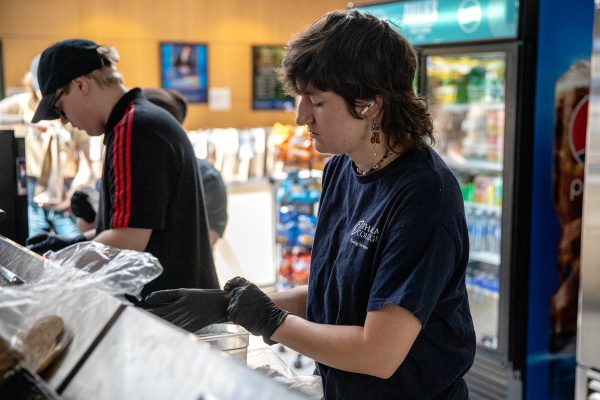
The Dailies Cafe uses more electricity than other exchange locations because of the power draw required by the panini press machines. Golden said the Dailies Cafe has exceeded its high electrical power draw at times.
“[In an] ideal world, [the] Park cafe probably is a menu that isn’t a heavy lift in terms of the electrical output that’s needed,” Golden said. “And so is it possible that a menu change or a small adjustment there kind of gets us where we’re at and settles us into a more comfortable place? Yeah that could be possible.”
Golden said that while there has been tension between the cafe and Park faculty, that tension is not necessarily representative of a larger overarching issue.
“This is one of those instances where the problem is real, but the conflict is not,” Golden said.
Sophomore Dailies Cafe employee Lindsay Rusakow said there have been many communication issues with management, and she and other workers have felt disrespected by admissions staff and Park administration.
“With Park [admin] and admissions … they were speaking to the students who are working, who are paying to go here … like they were not equals,” Rusakow said.
Gearhart said the Park School has asked Dining Services to not have the full cafe there next year.
“The decision for some solution is not ours, it’s Dining Services’,” Gearhart said. “We’ve asked if we could address [the cafe] by next year. … We are using every nook and cranny [of the building] almost all the time, and there’s not a lot of other space.”
Golden said that while the college does not have any official plans on closing the cafe, changes are possible because the retail dining locations were adapted for the meal exchange service, not designed for it.
“We need to think about the right menus in places not just because of the physical volume of people that move around in them, but also the operational realities of what it takes to produce those menus,” Golden said.
Friedman said he wanted to find a happy medium for all parties and he felt the cafe workers were being left out of important discussions.
“It’s kind of ironic [that] the communication school … doesn’t want to communicate,” Friedman said. “Now it’s kind of more … pushing from each side where we’re frustrated and feel like there’s nothing we can do.”



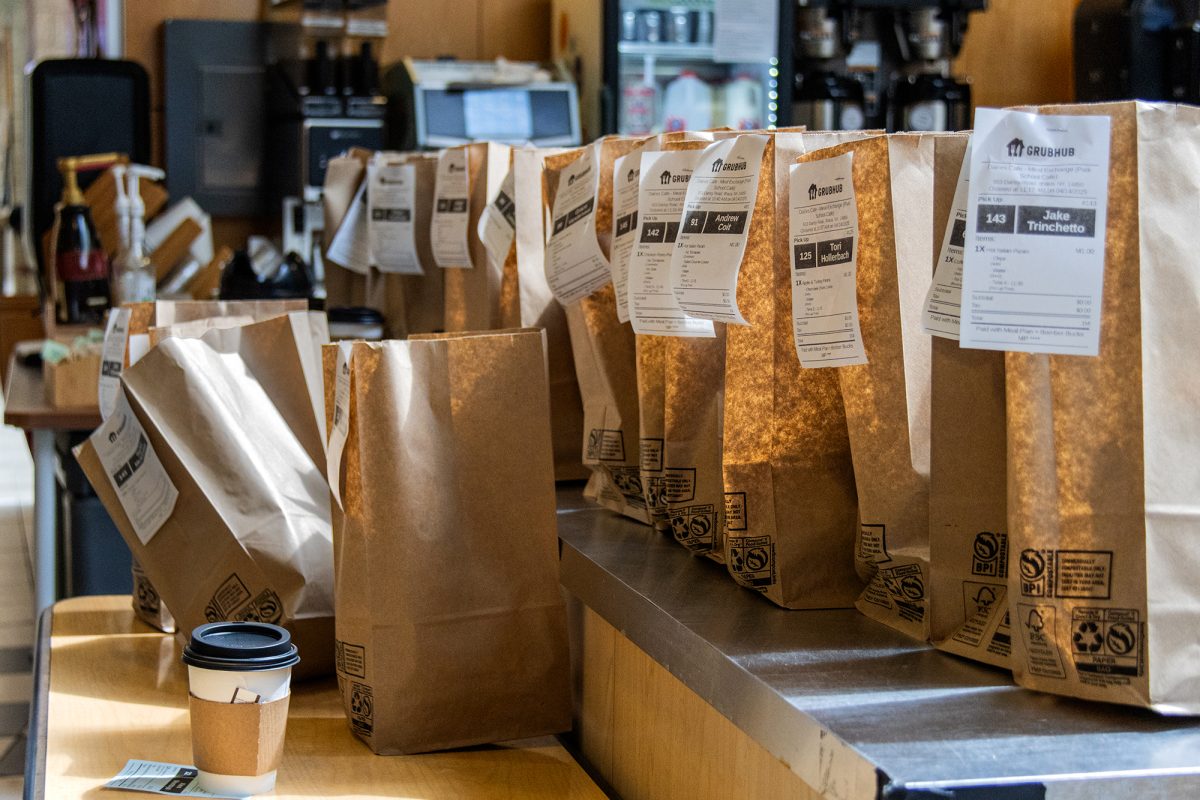
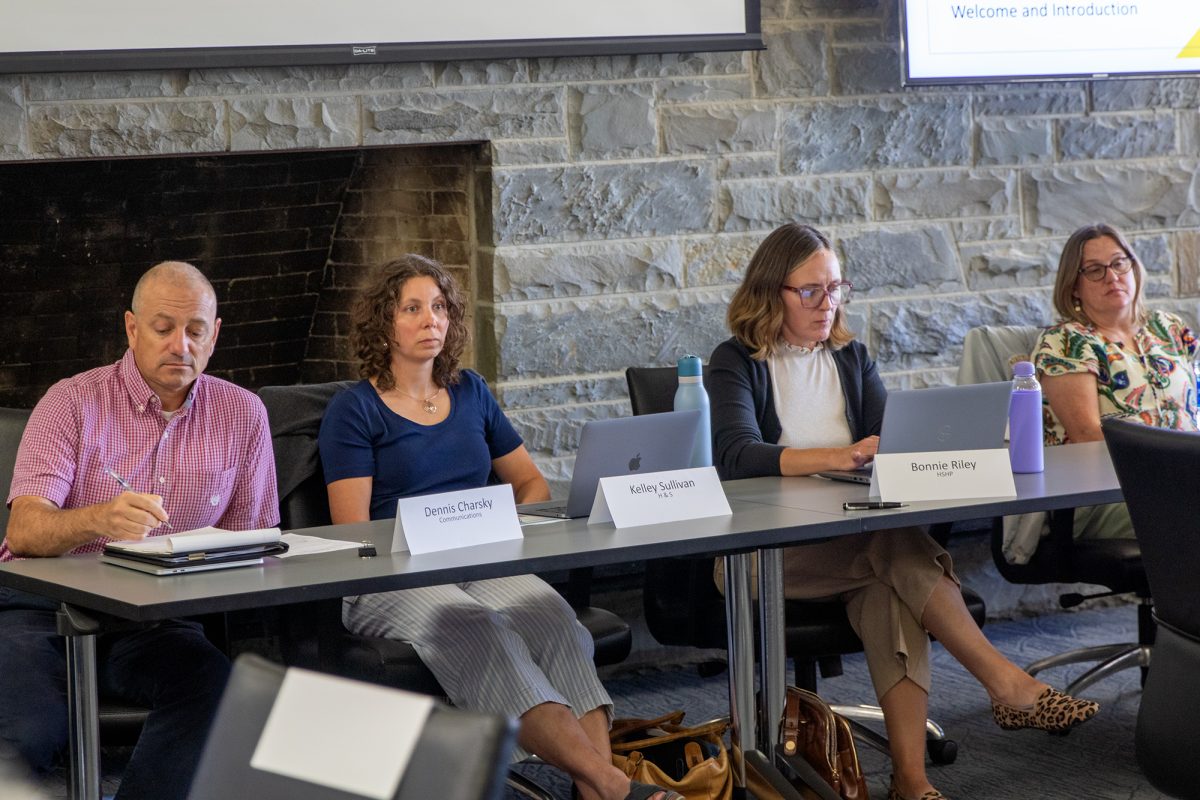
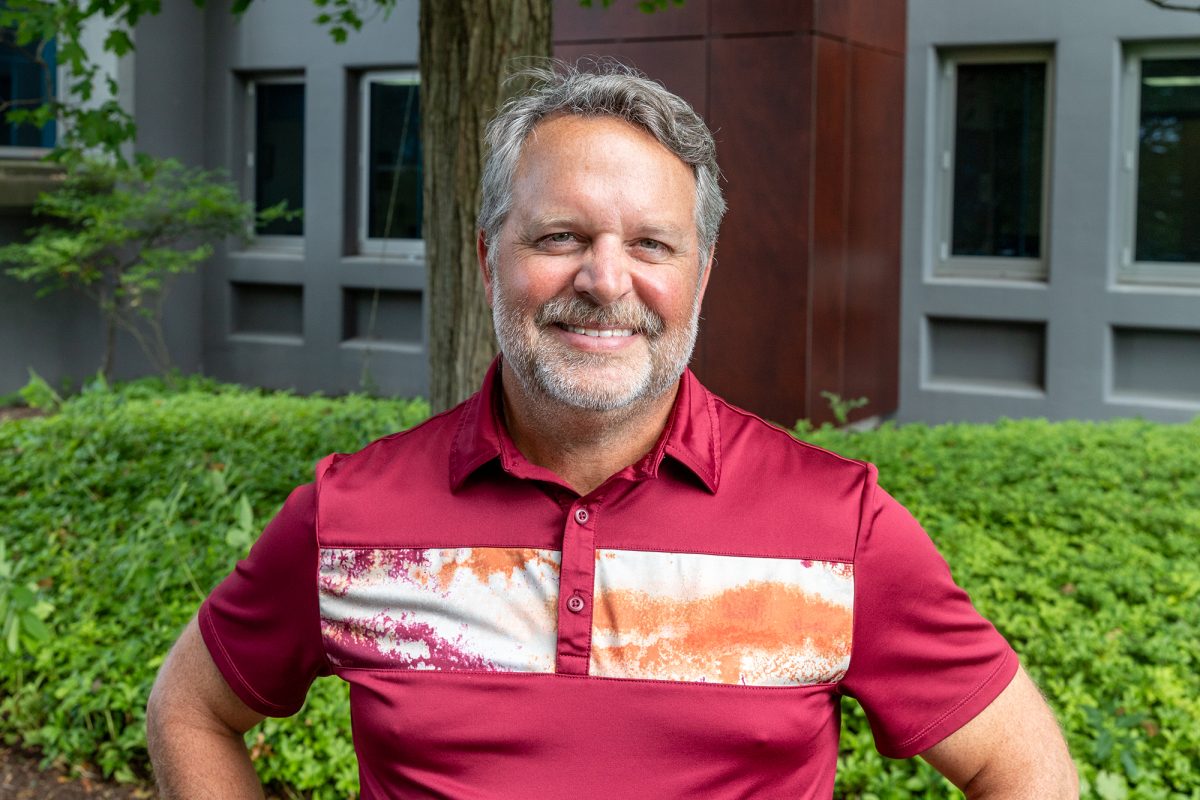
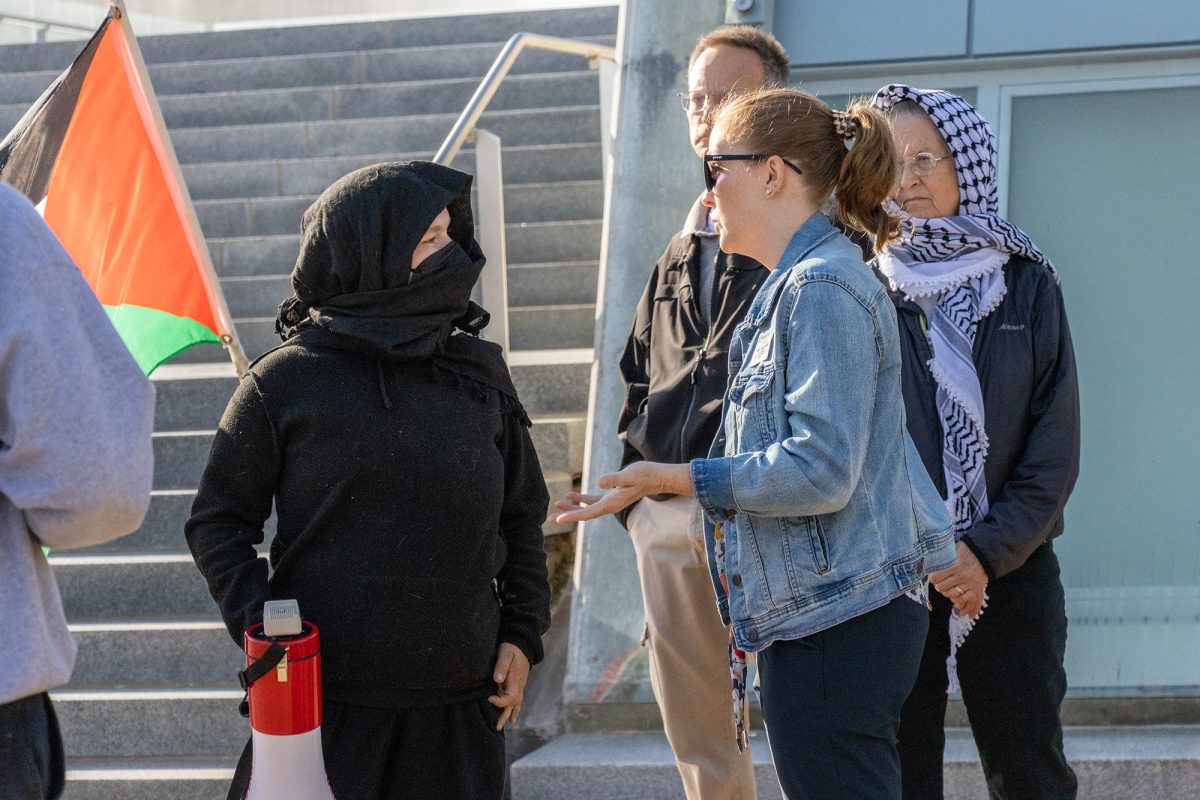
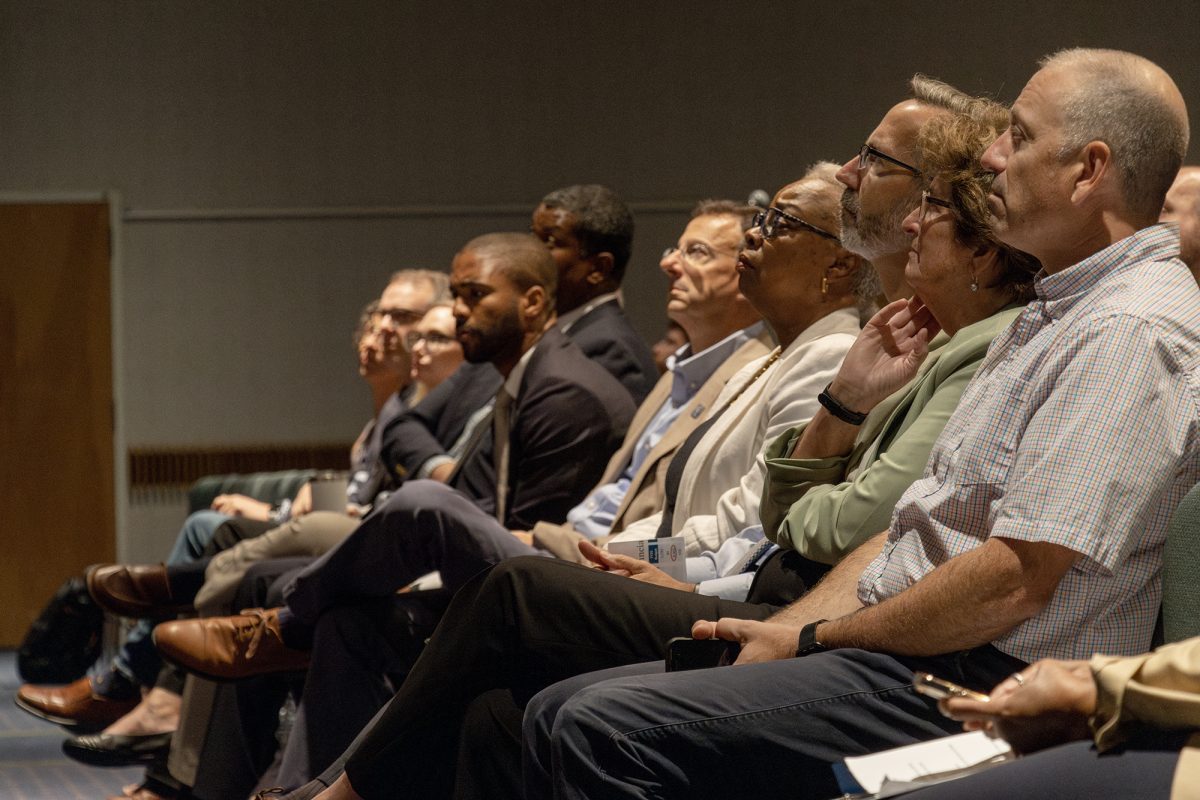
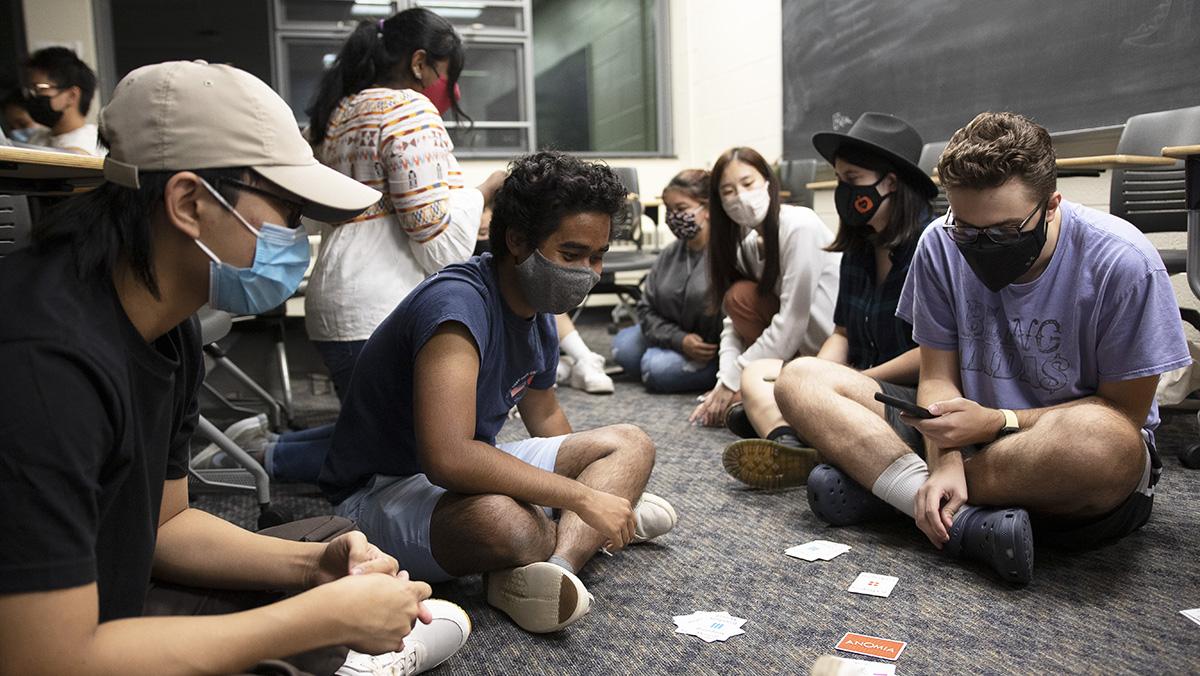
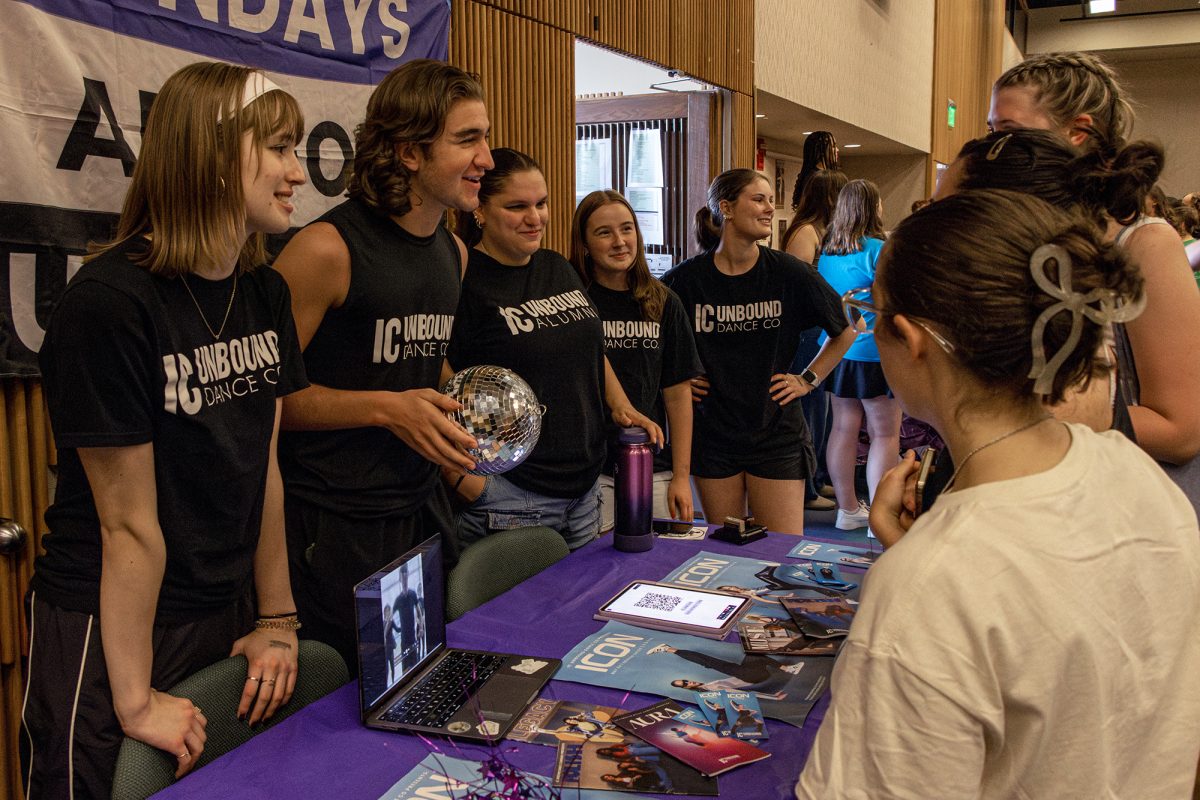



Matt Doherty • May 1, 2025 at 3:25 pm
Consistently, Park Cafe has gone above and beyond in terms of meeting the demand for food. We’re constantly dealing with hour-long queues for meals and working with inadequate equipment and a suffocating environment. The unwillingness of the administration to listen to the Park Cafe employees’ needs and to simply blame it on a noise complaint is disappointing. Furthermore, many students and staff depend on the cafe for two to three meals a day. Downsizing the cafe would limit the already few hours that students can work and would leave many students who have come to rely on the cafe without an adequate meal option. The fact that the administration waited for the Ithacan to announce this change speaks volumes to their view of Park cafe workers as less than. They love to showcase us on tours, but when it comes to issues that actually matter, they refuse to speak to us as equals. Dean Falkner, you can’t have your cake and eat it too. Support YOUR students, instead of focusing on the next batch you can scam.